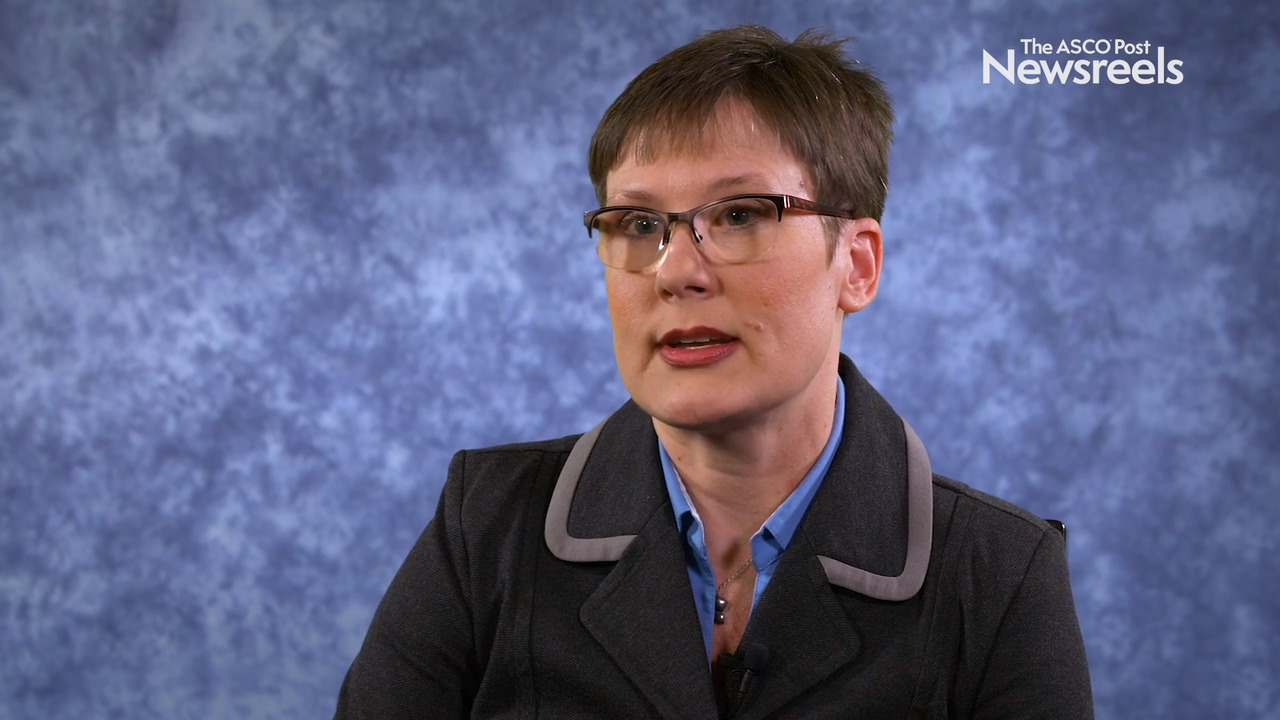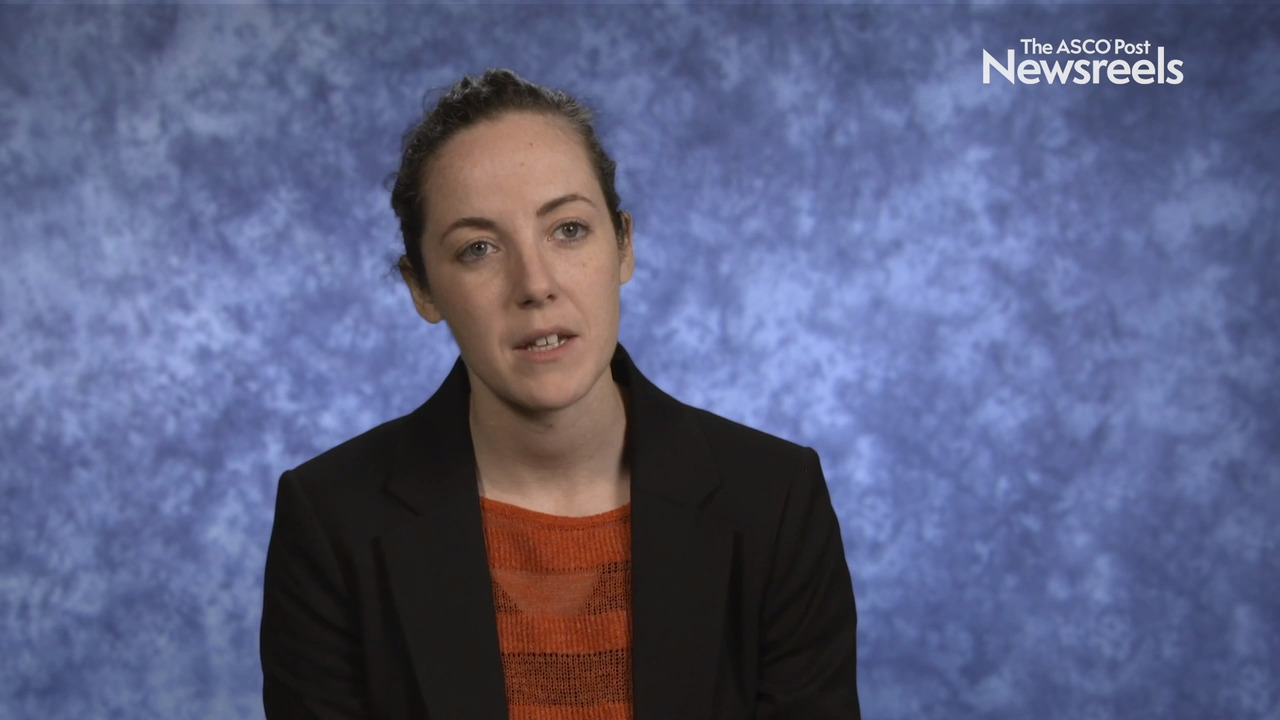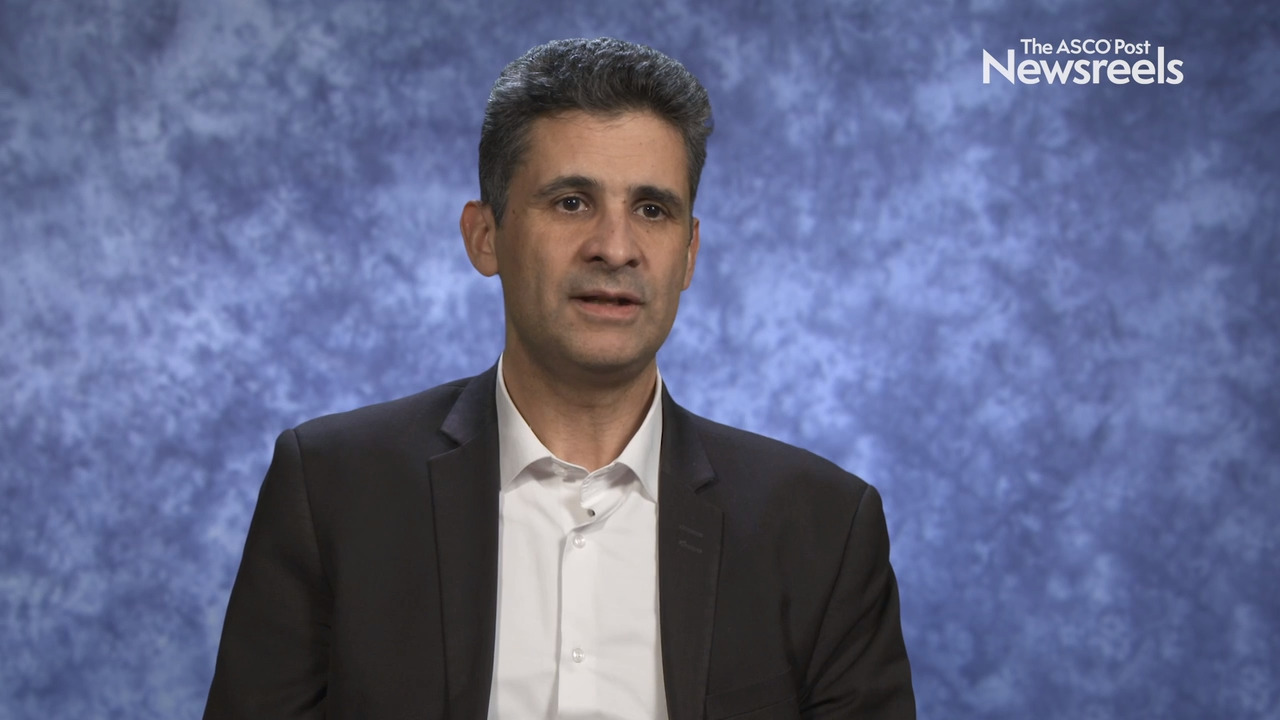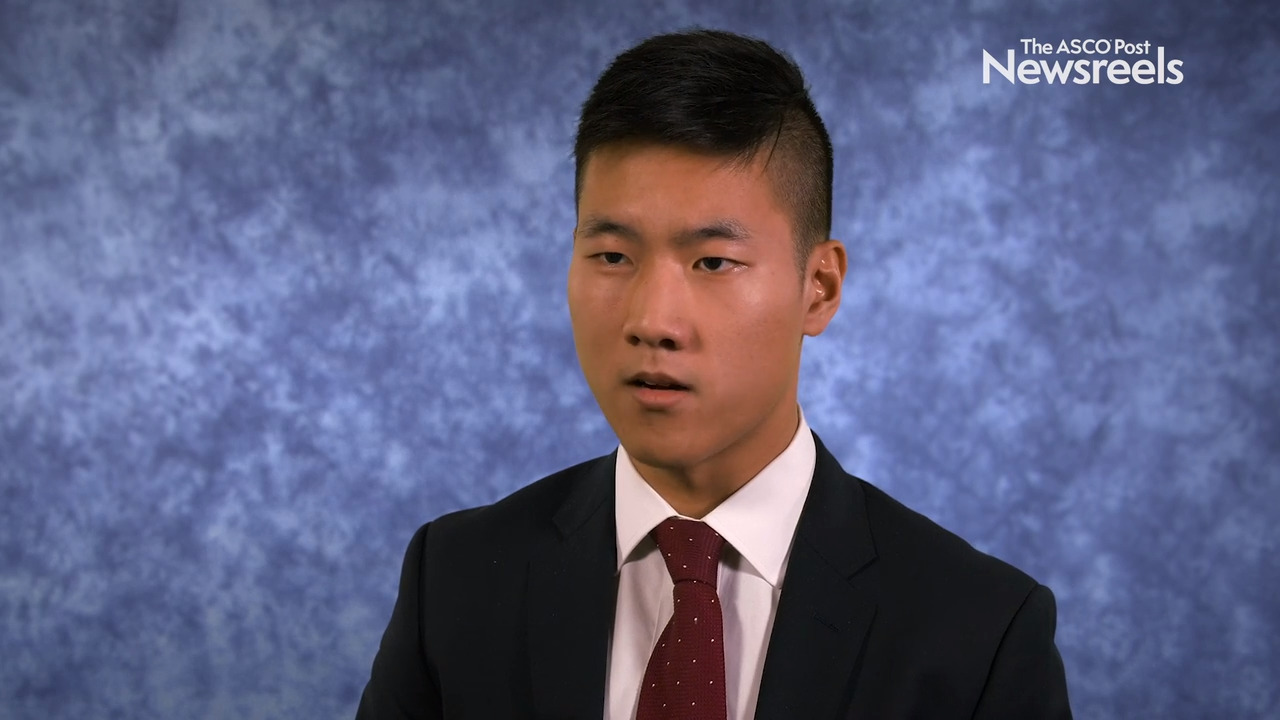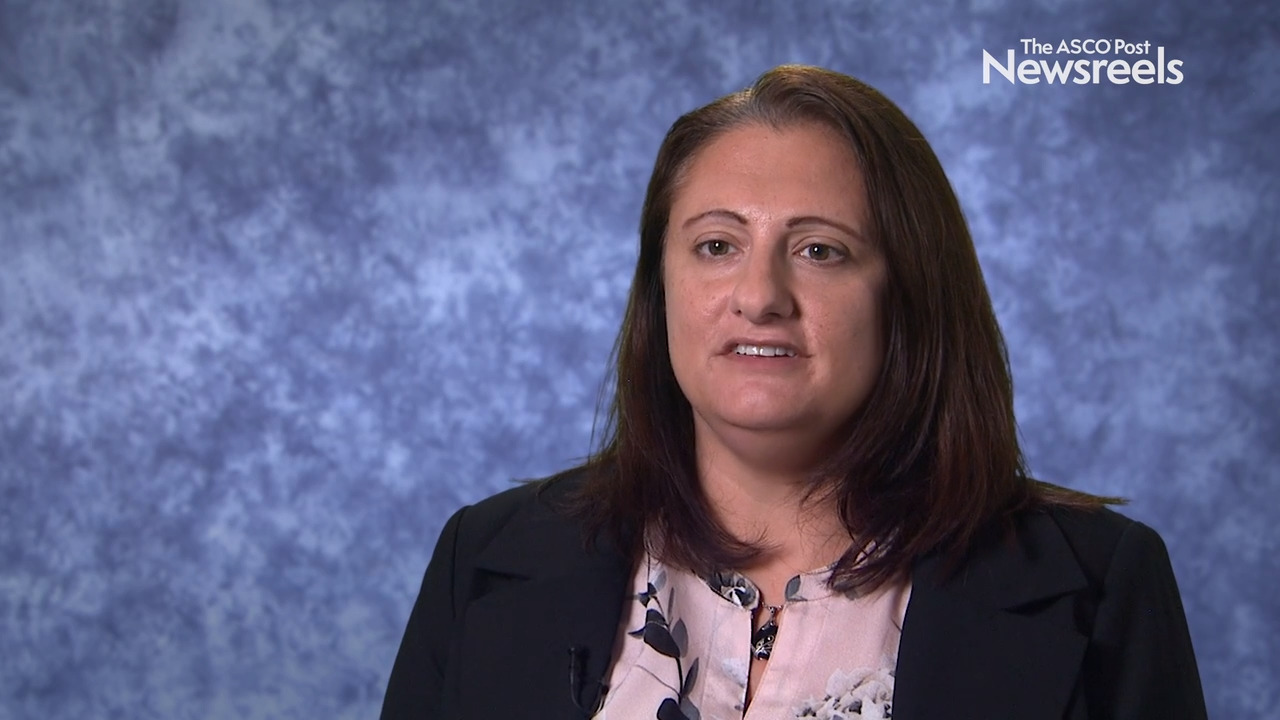Teriparatide for Medication-Related Osteonecrosis of the Jaw
In an Australian study reported in the Journal of Clinical Oncology, Sim et al found that the osteoanabolic agent teriparatide improved the rate of resolution of medication-related osteonecrosis of the jaw lesions vs placebo in a population of patients who had previous exposure to either...
PICOS Score May Help Identify Patients With Brain Metastases at Risk of VTE
In a study published by Wolpert et al in the European Journal of Cancer, venous thromboembolic events (VTE) were reported in 12% of a cohort of patients with cancer that had metastasized to the brain. Researchers identified thrombogenicity of primary tumor, immobilization, chemotherapy, obesity,...
Small Study Finds Olanzapine Reduces Nausea and Vomiting Caused by Advanced Cancer
The antipsychotic agent olanzapine may be helpful in reducing nausea and vomiting caused by advanced cancer, according to results of a study by Loprinzi et al published recently in JAMA Oncology. “There was a dramatic reduction [in nausea and vomiting] within 24 hours in the people who received...
Ruxolitinib Improves Response Rates in Glucocorticoid-Refractory Acute Graft-vs-Host Disease After Allogeneic SCT
In the phase III REACH2 trial reported in TheNew England Journal of Medicine, Robert Zeiser, MD, of the Department of Hematology, Oncology, and Stem Cell Transplantation, University Medical Center Freiburg, Germany, and colleagues found that the JAK1/2 inhibitor ruxolitinib improved response rate...
Highlights From Complementary and Integrative Medicine Research and Implications for Clinical Practice
Due to COVID-19, this year’s ASCO Annual Meeting was convened using a virtual format. It was multidisciplinary, featuring more than 250 oral and 2,500 poster presentations from around the world in 24 disease-based and specialty tracks. Among the exciting talks in the session on symptoms and...
EHA25 Virtual: Roundup of Findings in Leukemia, Lymphoma, and More
Advances in the treatment of hematologic malignancies and some of their associated symptoms were presented during EHA25 Virtual, an ongoing online conference from the European Hematology Association (EHA). Advances in the Treatment of High-Risk CLL: CLL2-GIVe Results In the CLL2-GIVe trial, the...
FDA Approves Pegfilgrastim Biosimilar, Pegfilgrastim-apgf
On June 11, the U.S. Food and Drug Administration (FDA) approved a biosimilar to pegfilgrastim (Neulasta), pegfilgrastim-apgf (Nyvepria), to decrease the incidence of febrile neutropenia in patients with nonmyeloid malignancies receiving myelosuppressive anticancer drugs associated with a...
New Cancer Cachexia Guideline Addresses Common Quality-of-Life Issue
ASCO recently released a new evidence-based guideline regarding the clinical management of cancer cachexia in adults with advanced cancer.1 The guideline is the result of a literature review that included 20 systematic reviews and 13 randomized clinical trials. An expert panel was convened to...
Use of Symptom Assessment Scale vs Routine Management in Patients With Cancer Receiving Radiotherapy
In a single-institution study reported in JCO Oncology Practice, Goyal et al found that use of the Edmonton Symptom Assessment Scale (ESAS) self-assessment tool during weekly on-treatment physician visits was associated with reduced symptom severity vs routine symptom management in patients...
Effectiveness of Different Severity Thresholds for Chemotherapy-Related Symptom Alerts
In a study reported in JCO Oncology Practice, Shi et al found that use of higher-than-currently-recommended severity thresholds for symptom alerts for patients receiving outpatient chemotherapy would result in failure to identify and treat many patients requiring clinical intervention for ...
Ruxolitinib in Glucocorticoid-Refractory Acute Graft-vs-Host Disease After Stem Cell Transplant
In the phase III REACH2 trial reported in The New England Journal of Medicine, Zeiser et al found that the JAK1/2 inhibitor ruxolitinib improved response rate vs investigator’s choice of therapy in patients with glucocorticoid-refractory acute graft-vs-host disease (GVHD) following allogeneic stem...
Cognitive Impairment With Adjuvant Chemoendocrine vs Endocrine Therapy for Early Breast Cancer in the TAILORx Trial
In a study reported in the Journal of Clinical Oncology, Wagner et al found that patient-reported cognitive impairment was worse at 3 and 6 months in women with early breast cancer receiving adjuvant chemoendocrine therapy vs endocrine therapy alone in the TAILORx trial, with no significant...
Recurrence of Immune-Related Adverse Events After Checkpoint Inhibitor Rechallenge in Patients With Cancer
A study reported in JAMA Oncology by Dolladille et al using pharmacovigilance data from the World Health Organization database VigiBase found that the same immune-related adverse events (irAEs) associated with discontinuation of immune checkpoint inhibitor therapy recurred in 28.8% of patients...
Program for Improving VTE Risk Assessment, Patient Education, and Prophylaxis Use in an Ambulatory Cancer Clinic
In a study reported in JCO Oncology Practice, Holmes et al found that a program instituted at the University of Vermont Medical Center was successful in improving venous thromboembolism (VTE) risk assessment, patient education, and rates of prophylaxis use in patients initiating anticancer...
Karen Wonders, PhD, on Benefits of Exercise During Cancer Treatment
Karen Wonders, PhD, of Wright State University, discusses the safety and efficacy of exercise during cancer treatment in minimizing toxicities and addressing the short- and long-term effects of cancer therapy. Dr. Wonders suggests that exercise becomes a standard of care for patients with cancer (Abstract HSR20-110).
Treatment With Checkpoint Inhibitors May Cause Thyroid Dysfunction
Thyroid dysfunction following treatment with immune checkpoint inhibitors is more common than previously thought, according to research that was accepted for presentation at ENDO 2020, the Endocrine Society’s annual meeting (Abstract SAT-418), and that will be published in Journal of the Endocrine...
FDA Approves Luspatercept-aamt for Second-Line Treatment of Anemia in Adult Patients With Myelodysplastic Syndromes
On April 3, the U.S. Food and Drug Administration (FDA) approved luspatercept-aamt (Reblozyl) for the treatment of anemia that fails to respond to an erythropoiesis-stimulating agent and requires two or more red blood cell units over 8 weeks in adult patients with very low- to intermediate-risk...
Expert Point of View: Jarushka Naidoo, MBBCh
“The investigators of the current study tested the hypothesis that vitamin D supplementation is associated with a reduced risk of checkpoint-induced colitis by rigorously assessing 37 variables in both discovery and validation cohorts,” said invited discussant Jarushka Naidoo, MBBCh, Assistant...
Vitamin D Supplementation May Protect Against Checkpoint Inhibitor–Induced Colitis
Vitamin D supplementation prior to starting immune checkpoint inhibitor therapy may significantly reduce the odds of developing colitis, according to a study conducted at Harvard Medical School. Although this was a retrospective chart review, the association was relatively strong in the...
Gastrointestinal Patient-Reported Outcomes With Postoperative Intensity-Modulated Radiotherapy vs Standard Radiotherapy
In an analysis from the NRG Oncology RTOG 1203 study reported in the Journal of Clinical Oncology, Yeung et al found improved patient-reported gastrointestinal toxicity with intensity-modulated radiotherapy vs standard radiotherapy among patients with cervical or endometrial cancer requiring...
Carryn M. Anderson, MD, on Reducing Severe Oral Mucositis and Its Effect on Patient Outcomes
Carryn M. Anderson, MD, of the University of Iowa Hospital, discusses the investigational agent GC4419, previously shown to be safe and effective in decreasing the duration, incidence, and severity of oral mucositis in patients receiving concurrent cisplatin and radiation for oral cavity and oropharyngeal squamous cancers. The 2-year tumor outcome data suggest that GC4419 does not seem to compromise tumor control (Abstract LBA2).
Hannah L. Rush, MBChB, on Prostate Cancer: Comparing Quality of Life in Patients Receiving Docetaxel or Abiraterone
Hannah L. Rush, MBChB, of the Clinical Trials Unit at University College London, discusses an analysis of the STAMPEDE trial, which showed that patients treated with abiraterone had higher scores in global quality of life as well as in the physical, social, and role function domains and lower scores for pain and fatigue over the first 2 years than those receiving docetaxel (Abstract 14).
Karim Fizazi, MD, PhD, on Prostate Cancer: Pain and Quality of Life in Patients Receiving Cabazitaxel vs Abiraterone or Enzalutamide
Karim Fizazi, MD, PhD, of the Institut Gustave Roussy, discusses results from the CARD study, which showed that cabazitaxel improved pain, time to pain progression, and symptomatic skeletal events, as well as quality of life in patients with metastatic castration-resistant prostate cancer. The findings support the use of this agent as a standard of care (Abstract 16).
Immune-Related Adverse Events in Patients With Cancer Receiving Influenza Vaccination During Treatment With Pembrolizumab
In a study reported in JCO Oncology Practice, Failing et al found that influenza vaccination did not increase the incidence of immune-related adverse events among patients receiving pembrolizumab for various cancers. On multivariate analysis, influenza vaccination was associated with a...
Kevin Tyan on Colitis Induced by Immune Checkpoint Inhibitors: Potential Preventive Strategy
Kevin Tyan, of Kinnos, and currently a medical school student at Harvard University, discusses his study findings, which showed that patients with melanoma who are treated with immunotherapy had a significantly lower risk of developing colitis if they also took vitamin D ( Abstract 89).
ASCO-SITC 2020: Low Incidence of Nivolumab-Induced Radiation Recall Pneumonitis Among Patients With NSCLC
A multicenter retrospective study investigating the incidence of pneumonitis and the incidence, risk factors, and clinical characteristics of radiation recall pneumonitis in patients with non–small cell lung cancer (NSCLC) who had received nivolumab found the incidence of radiation recall...
Expert Point of View: Jeremy S. Abramson, MD
Jeremy S. Abramson, MD, Director of the Jon and JoAnn Hagler Center for Lymphoma at Massachusetts General Hospital and Associate Professor of Medicine at Harvard Medical School, Boston, commented on the study by Topp et al for The ASCO Post. “Earlier use of steroids with axicabtagene ciloleucel...
ASCO-SITC 2020: Vitamin D May Reduce Risk for Immune Checkpoint Inhibitor–Associated Colitis
In a study to be presented by Tyan et al at the upcoming 2020 ASCO-SITC Clinical Immuno-Oncology Symposium (Abstract 89), researchers found that vitamin D intake may be associated with reduced risk of colitis among patients being treated with immune checkpoint inhibitors. Retrospective Analysis In ...
Early Steroid Use May Reduce Toxicity With CAR T-Cell Therapy
In patients with large B-cell lymphoma undergoing chimeric antigen receptor (CAR) T-cell therapy with axicabtagene ciloleucel, earlier-than-usual intervention with corticosteroids and tocilizumab may reduce the incidence of severe cytokine-release syndrome, according to the findings of a...
Expert Point of View: Preet M. Chaudhary, MD, PhD
Preet M. Chaudhary, MD, PhD, of the University of Southern California (USC) Keck School of Medicine, Los Angeles, commented on the HOVON-96 trial for The ASCO Post. Dr. Chaudhary is Professor and Chief of Hematology, the Ronald H. Bloom Family Chair in Lymphoma Research, and Program Director of...
Improved Prevention of Graft-vs-Host Disease Reported With Posttransplant Cyclophosphamide
Following allogeneic hematopoietic stem cell transplantation, cyclophosphamide significantly reduced grades II to IV acute and chronic extensive graft-vs-host disease compared with conventional immunosuppression, investigators reported during the Plenary Session at the 2019 American Society of...
Acupuncture May Reduce Radiation-Induced Dry Mouth for Patients With Head and Neck Cancer
After receiving acupuncture treatment 3 days a week during the course of radiation treatment, patients with head and neck cancer experienced less dry mouth, according to study results published by Garcia et al in JAMA Network Open. The results are from the first randomized, placebo-controlled,...
Single-Fraction vs Multifraction Radiotherapy for Patients With Spine Metastases
Spinal canal compression is a common complication in patients with cancer if disease metastasizes to the spine—about 3% to 5% of patients with cancer develop it. Radiotherapy is used to control pain and alleviate symptoms. According to results from the SCORAD randomized clinical trial, published by ...
Risk of Asparaginase-Associated Pancreatitis in Patients With Acute Lymphoblastic Leukemia
In a study reported in the Journal of Clinical Oncology, Rank et al found a similar risk of asparaginase-associated pancreatitis in older children, adolescents, and adults and greater associated morbidity in adolescents with acute lymphoblastic leukemia treated according to the Nordic Society of...
Oncology Massage Therapy for Chemotherapy-Induced Peripheral Neuropathy
Oncology massage therapy might be a helping hand for patients suffering from chronic chemotherapy-induced peripheral neuropathy, according to data presented at the 2019 Supportive Care in Oncology Symposium.1 The results of the pilot study supported the premise that patients who received massages...
Maximizing Benefit in the Treatment of Immune-Mediated Colitis
Immune-related colitis is the second most common toxicity associated with checkpoint inhibitors, affecting up to 40% of patients. The ASCO Post interviewed Yinghong Wang, MD, PhD, Director of Medication-Induced Colitis and Enteritis, Director of Fecal Microbiota Transplantation, and Associate...
Dexamethasone Plus Exercise May Reduce Fatigue in Patients With Advanced Cancer
A novel treatment approach may help to alleviate one of the most common and debilitating symptoms associated with cancer and its treatments—fatigue. According to data presented at the 2019 Supportive Care in Oncology Symposium,1 the combination of short-course dexamethasone plus standardized...
FDA Approves Pegfilgrastim Biosimilar
On November 5, the U.S. Food and Drug Administration (FDA) approved a biosimilar to pegfilgrastim, pegfilgrastim-bmez (Ziextenzo). Pegfilgrastim-bmez is indicated to decrease the incidence of infection, as manifested by febrile neutropenia, in patients with nonmyeloid malignancies receiving...
First Survivor Views Survey Highlights Barriers to Addressing Side Effects of Cancer Treatment
Barriers to accessing appropriate therapies to address the physical and psychological side effects of cancer treatment continue to persist for patients and survivors, according to results of the Survivor Views survey conducted by the American Cancer Society Cancer Action Network (ACS CAN)....
Superoxide Dismutase Mimetic for Reducing Severe Oral Mucositis From Concurrent Radiotherapy and Cisplatin in Head and Neck Cancer
In a phase IIb trial reported in the Journal of Clinical Oncology, Anderson et al found that the superoxide dismutase mimetic GC4419 was effective in reducing the duration, incidence, and severity of severe oral mucositis in patients with head and neck cancer receiving concurrent radiotherapy and...
Superoxide Dismutase Mimetic for Reducing Severe Oral Mucositis From Concurrent Radiotherapy and Cisplatin in Head and Neck Cancer
In a phase IIb trial reported in the Journal of Clinical Oncology, Anderson et al found that the superoxide dismutase mimetic GC4419 was effective in reducing duration, incidence, and severity of severe oral mucositis in patients with head and neck cancer receiving concurrent radiotherapy and...
FDA Approves Label Expansion for Single-Dose Regimen of Intravenous Aprepitant for Patients Receiving Moderately Emetogenic Chemotherapy
On October 22, the U.S. Food and Drug Administration (FDA) approved a supplemental new drug application (sNDA) for aprepitant (Cinvanti) injectable emulsion for intravenous (IV) use. The sNDA requested FDA approval to expand the recommended dosage to include the 130-mg single-dose regimen for...
Update to FDA Prescribing Information for Romiplostim for Adults With Immune Thrombocytopenia
On October 18, the U.S. Food and Drug Administration (FDA) approved a supplemental biologics license application (sBLA) for romiplostim (Nplate) to include new data in its U.S. prescribing information showing sustained platelet responses in adults with immune thrombocytopenia. The updated...
FDA Pipeline: Designations for Acute Graft-vs-Host Disease, Peripheral T-Cell Lymphoma
Recently, the U.S. Food and Drug Administration (FDA) granted Fast Track designation to a therapy for steroid-refractory acute graft-vs-host disease and granted Orphan Drug designation to a therapy for peripheral T-cell lymphoma. Fast Track Designation for T-Guard in Steroid-Refractory Acute...
Romiplostim for Patients With Chemotherapy-Induced Thrombocytopenia
In a single-center phase II study reported in the Journal of Clinical Oncology, Soff et al found that treatment with romiplostim was effective in rapidly correcting chemotherapy-induced thrombocytopenia, with maintenance treatment being effective in reducing risk of recurrent chemotherapy-induced...
International Guidelines for Treatment and Prophylaxis of VTE in Patients With Cancer
The 2019 International Initiative on Thrombosis and Cancer (ITAC) has issued updated clinical practice guidelines for the treatment and prophylaxis of venous thromboembolism (VTE) in patients with cancer. They were published by Farge et al in The Lancet Oncology. The guidelines consist of...
ASTRO 2019: Machine-Learning Model May Accurately Predict Radiation Side Effects in Patients With Head and Neck Cancers
A study by Reddy et al investigating the use of a machine-learning model to predict which patients with head and neck cancer being treated with radiation may experience significant weight loss, feeding tube placement, and unplanned hospitalization has found that the model accurately identified the...
Home-Based Exercise and Weight Loss Programs for Lymphedema Management in Overweight Breast Cancer Survivors
As reported in JAMA Oncology by Schmitz et al, the WISER Survivor trial showed no benefit of home-based exercise and weight loss programs on lymphedema outcomes vs facility-based lymphedema care among overweight breast cancer survivors. Study Details In the trial, 351 overweight breast cancer...
Angela M. Stover, PhD, on Patient-Reported Outcome Performance Measures for Oncology Practice
Angela M. Stover, PhD, of the University of North Carolina at Chapel Hill, discusses ASCO’s initiative to develop patient-based performance measures for assessing and managing symptoms. The measures have made substantial differences in reducing nausea, constipation, and insomnia (Abstract 173).

